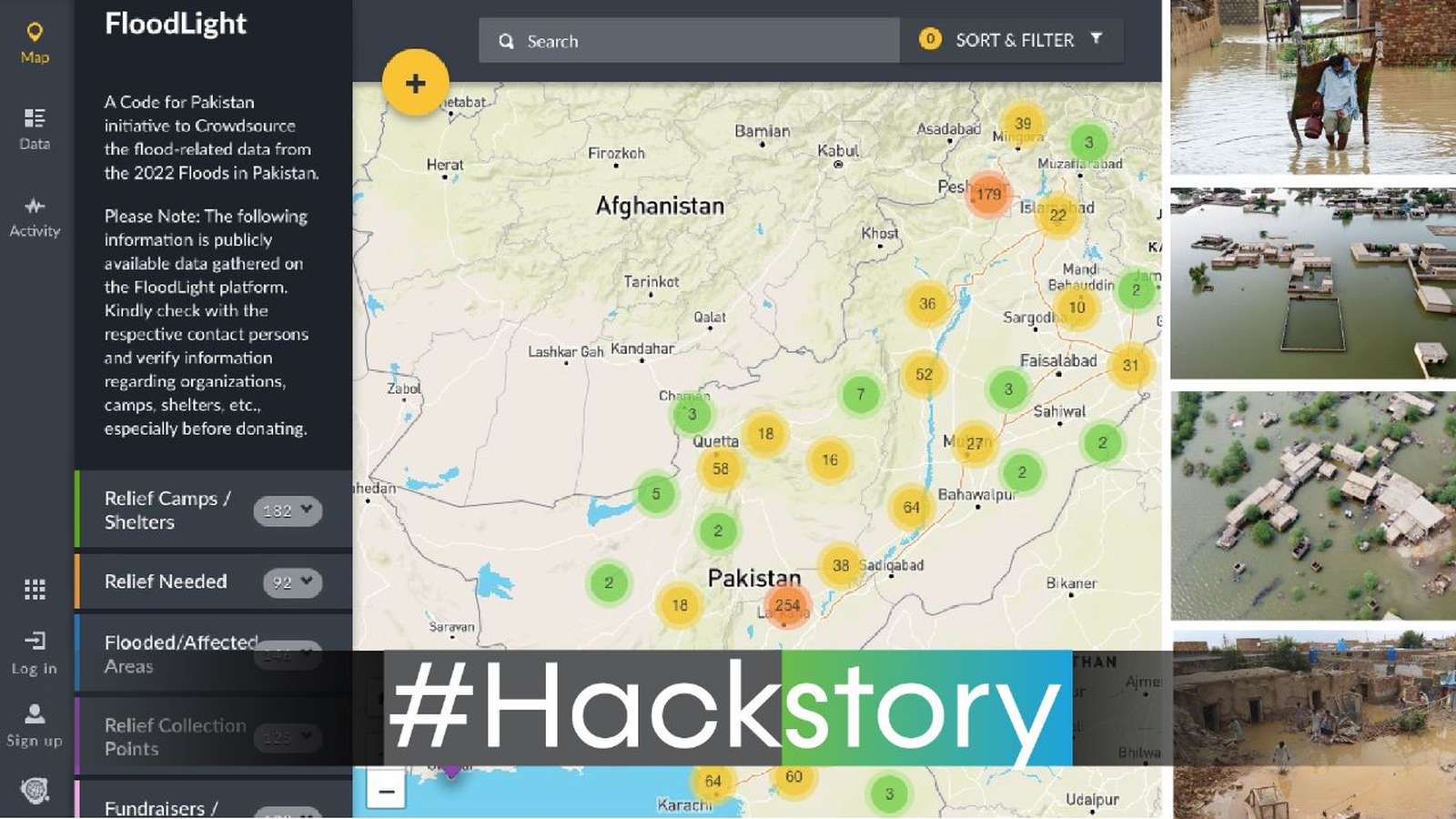
In the summer of 2022, a few months after I'd relocated to Pakistan, torrential rains—quickly becoming floods—began spreading all over the country. Almost 33 million people and livestock were affected by the tragedy. Thousands of casualties were reported. People became homeless overnight as the waves washed away their entire towns and villages. The number of displaced families in need of immediate help was increasing, but nobody knew where to go.
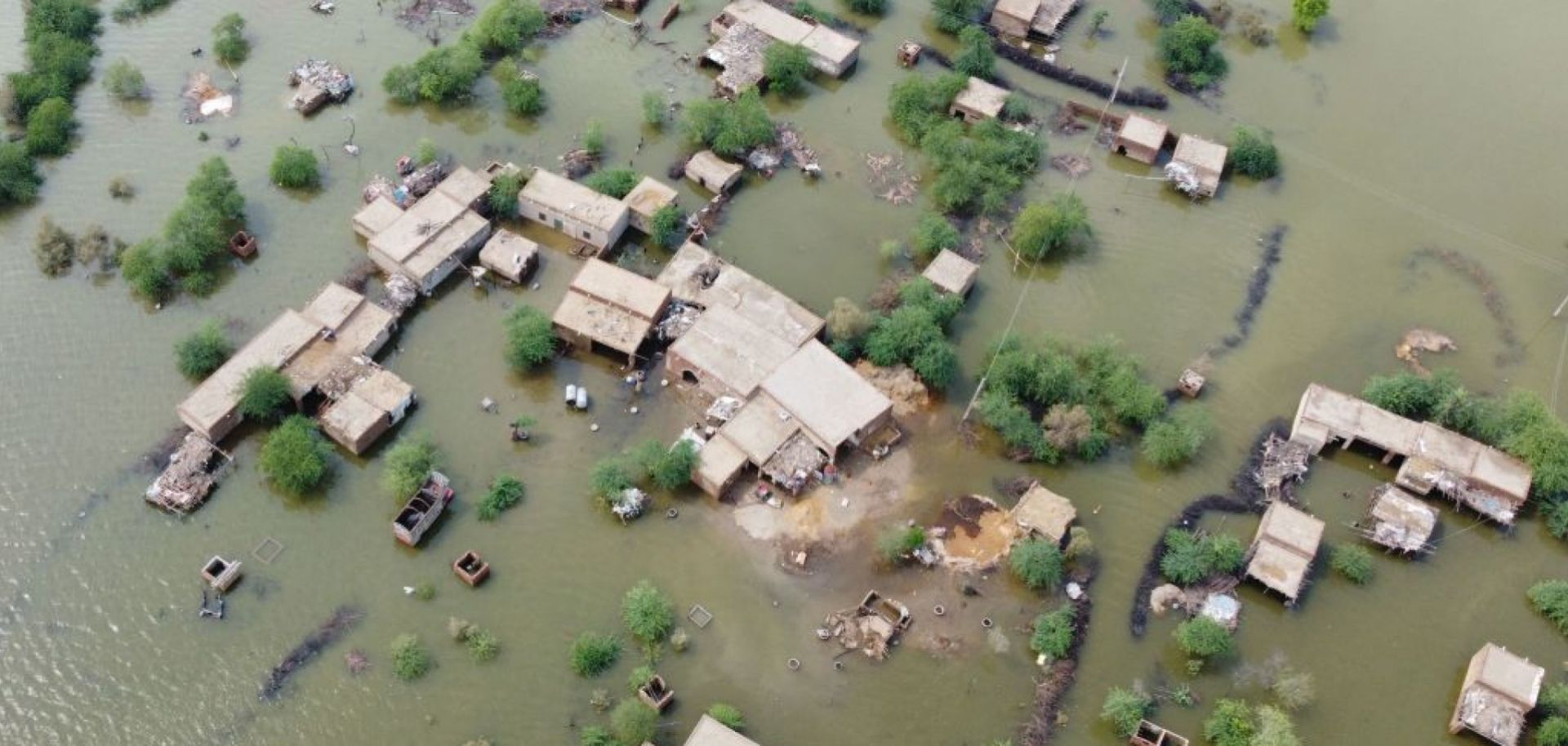
As news of the floods spread across the nation, we were bombarded with a constant stream of updates left, right, and center. But the overflow of information was only overwhelming us further. We struggled to make sense of the disaster and figure out how we could help those affected by it. It was heartbreaking to see so many people left homeless, and it was clear that urgent assistance was needed.
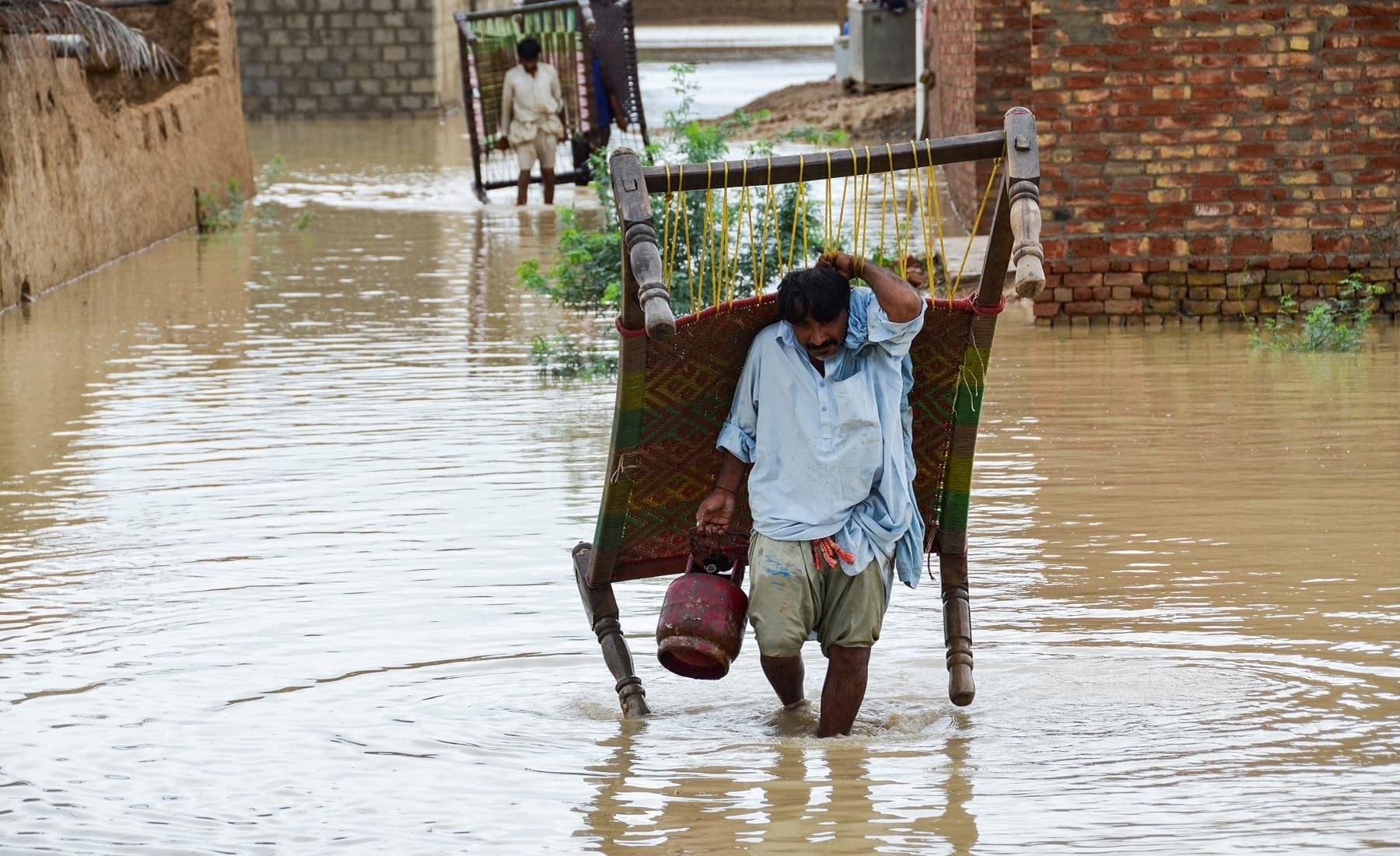
As we at Code for Pakistan searched for ways to contribute to the relief efforts, we hoped that clearer, more accurate information would emerge so that we could better understand the extent of the damage and how we could help the families affected by the floods.
My colleagues and I were checking up on each other to see if we were all doing okay. And in the aftermath of a 2 a.m. Google Meet inspired by this concerned group chat, FloodLight was created. Pakistan's first-ever data mapping platform for floods, open and accessible to all. Developed on top of an open-source application called Ushahidi, FloodLight was up and ready for use the very next morning.
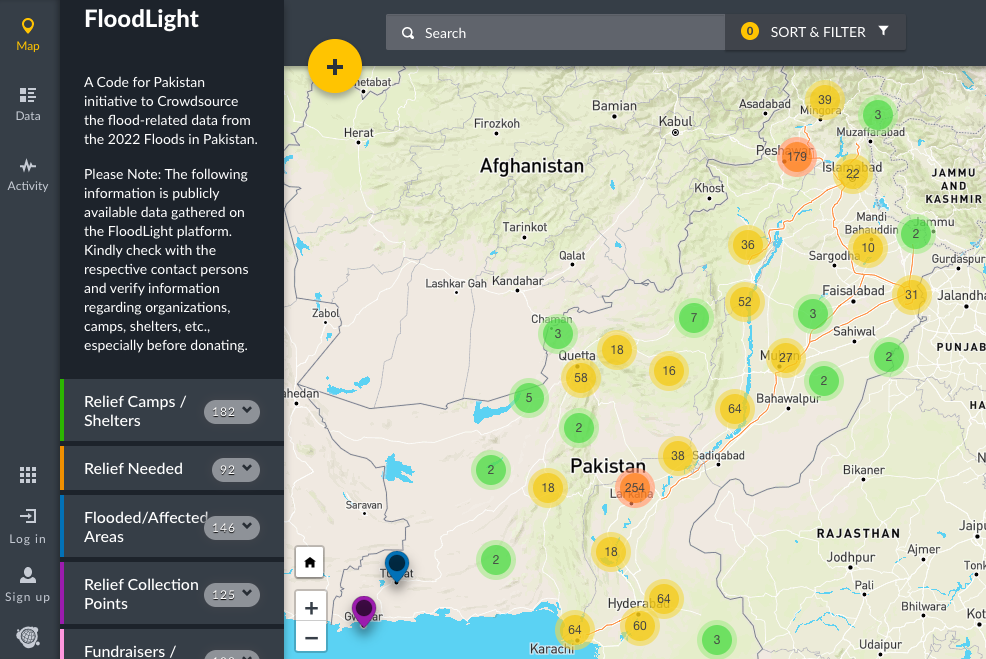
Ushahidi was initially created by Kenyan bloggers and activists as a response to civil unrest following a notorious round of Kenyan elections in 2007. In this time of crisis when we knew we had to act fast, Ushahidi was the perfect solution!
Civic Technology: Shifting Tides
With the system already in place, the next step was to figure out how to get data. Here, social media was the undisputed answer. To get our message across and connect with people closer to the damage, my team launched a social media campaign that would help crowdsource information onto FloodLight.
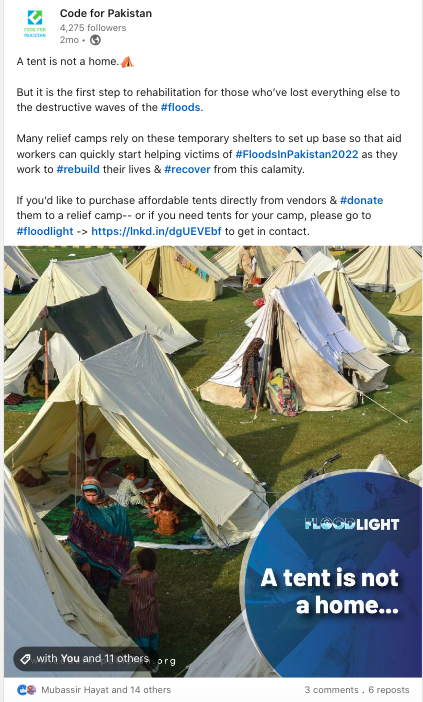
Within just 2 months, we were able to collect over 1000 data points that illustrated the floods' impact all over Pakistan. From locations of medical camps and relief shelters to fundraisers and soup kitchens, FloodLight showed you everything. As more and more after-effects of the floods surfaced, we modified and expanded the FloodLight platform to respond to these new concerns.
Thanks to our dedicated community of volunteers and civic hackers, we were able to connect with some prominent NGOs like Alkhidmat, Akhuwat and a committed network of on-the-ground volunteers. We wanted to make sure our efforts were reaching the right channels and that we were able to verify the information coming in. A group of volunteers was also monitoring entries on FloodLight around the clock before publishing them.
But it wasn't just about the data, although whatever we managed to gather was quite valuable. It was about making a meaningful difference. And as we tried to do this, we came across new ways that we could contribute that we hadn't even thought of before. For instance, the time when we reached out to Telenor on Twitter and asked them if they could provide support to Madat Balochistan, a grassroots NGO that we were in contact with. This organization was working tirelessly in one of the areas most severely affected by the floods, and their on-the-ground volunteers were struggling to coordinate aid activities due to damaged telecom lines. Not long after our tweet, Telenor came through with multiple WiFi devices for Madat Balochistan to continue their aid work more effectively!
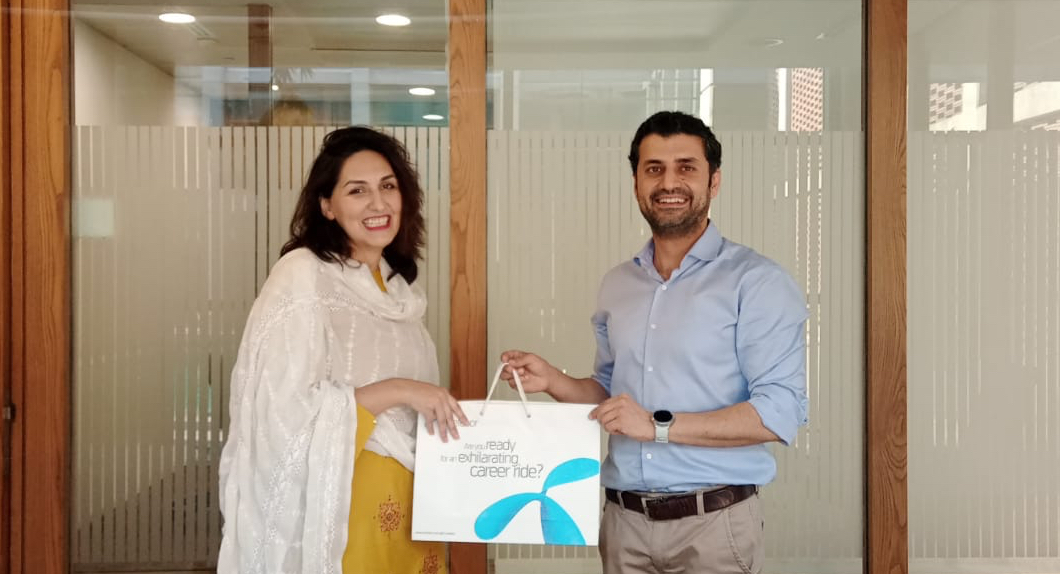
Together Against the Odds
So much was going on during the course of those few months. I noticed people around me going above and beyond to try and mend some of the devastation wrought by the floods. Whether it was early supporters, like floods.pk and PakLaunch, who embedded FloodLight onto their websites to magnify its efficacy, or other partners like the Ministry of Change and xWave, who concentrated on the post-flood recuperation process, each one employed their strengths and expertise to serve the greater good of the community. And this is what resounds the most as I recall the FloodLight project and its social media campaign—the resolute display of compassion by our community. While the country seemed to have been in shambles, the people stood together, united in the face of disaster.
"The greatness of a community is most accurately measured by the compassionate actions of its members." - Coretta Scott King
These events brought to light, not just the “greatness of community”, but in fact the potential that we harbor, not only as Pakistanis, but as a global community of responsible citizens. I saw this potential manifest itself through technologies like open-source and social media- two of the most vital tools that made our work possible. It is also the strength of this unity that led FloodLight all the way to our government bodies who decided to incorporate it as part of their own initiatives.
The FloodLight project was a practical example of civic tech at its finest for me. I got to witness how the community mobilized and worked together to create solutions that served their needs, and how the impact of those efforts amplified after collaborating with the government. The experience of interacting with so many people on social media and trying to get the word out made me realize that I could also contribute to my community. I could also play a part in social change. And it is this realization that I want to share with others. Your voice matters. Your ideas matter. Your passion and commitment matter. We all have the power to make a positive difference in our communities and perhaps, even beyond.
What's Next?
We are trying to make whatever difference we can so that our people do not have to suffer the kind of devastation they have in the past few months due to calamities like floods and earthquakes. Pakistan has been facing the brunt of climate change in the form of these natural disasters despite contributing less than 1% to the global carbon footprint. Pakistan also struggles with effective disaster response technology that could benefit pre and post disaster relief operations and significantly reduce the kind of damage we have been experiencing the past few years. Now, using our experience and prior learning we are working towards further enhancing FloodLight to function as an all-encompassing disaster management toolkit that focuses on relief, recovery and rehabilitation. We want to move beyond just crowdsourcing to actually study and analyze the data that was collected, and build upon FloodLight's current features.
You too can contribute to our cause by sponsoring the development of FloodLight or making a donation to further advance the project. With your support, we will be able to make a meaningful impact on Pakistan's disaster response efforts.
If you have any questions about FloodLight or our work, feel free to reach out to us at info@codeforpakistan.org!